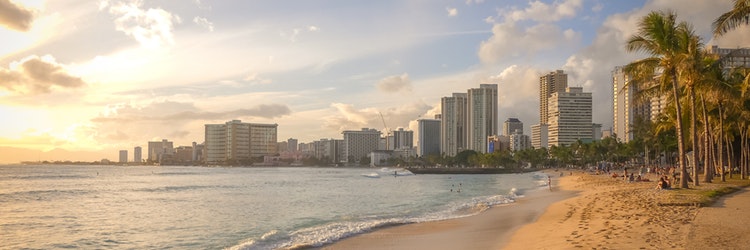Hawaii legislation may force Airbnb to collect taxes from guests
- Apr 16, 2019 | Jennifer Sokolowsky

State lawmakers in Hawaii have passed legislation that would require short-term rental platforms such as Airbnb, HomeAway, and VRBO to collect taxes on bookings on behalf of their hosts. Legislators passed bills in both the Senate and the House and will meet to reconcile the different versions this month.
Hawaii officials have tried for years to address short-term rental tax collection on the state level without success.
In 2016, Hawaii Governor David Ige vetoed a bill that would have authorized short-term rental platforms to collect lodging taxes, saying that such a law would encourage illegal short-term rentals unless they were better regulated. Last year, he expressed the same concerns when he rejected a proposed deal between the state and Airbnb that would allow the short-term rental platform to collect lodging taxes.
Earlier this year, the state attempted to subpoena 10 years of records from Airbnb in order to find out which of its hosts are paying lodging taxes, but a federal judge denied the request. The state wanted Airbnb to produce names, addresses, and financial records for 16,000 hosts, but Hawaii First Circuit Court Judge James Ashford said the state failed to prove that a substantial number of Airbnb hosts are disobeying tax laws.
A more recent ruling in Santa Monica, California, could have an impact on the question of whether governments can require short-term rental platforms to give up information about their bookings for enforcement purposes. A federal appeals court there ruled against Airbnb and HomeAway to allow the city to hold short-term rental platforms liable for listings of illegal short-term rentals on their sites.
In Hawaii, short-term rental income is subject to transient accommodations tax (TAT) as well as general excise tax (GET). Rental hosts can pass these taxes on to guests, but the hosts must register with the state, collect the taxes, and file regular tax returns. Many Hawaii short-term rental operators use MyLodgeTax to manage lodging tax compliance.
While short-term rental taxes come under state jurisdiction, short-term rental regulations and permits are governed by counties, which have been actively pursuing new rules.
On the Big Island, the Hawaii County Council recently approved new short-term rental regulations, creating a new zoning classification for short-term vacation rentals where the owner does not live on site. Under the new rules, short-term vacation operators are required to register with the county, and short-term rentals are only allowed in hotel, resort, and commercial zones.
The council sent the bill to the county Planning Department to draft the rules, which should be finalized this month.
On Oahu, the Honolulu City Council is considering two bills that would make major changes to Honolulu’s land use law, which generally prohibits short-term rentals outside of resort zones. It’s estimated there are approximately 800 legal Oahu short-term rentals, while 10 times that number are operating illegally without a required permit. Honolulu has not issued any new short-term rental permits since 1989.
And on Maui, voters last year approved a ballot initiative to dramatically increase penalties for short-term rentals operating without a permit, with fines of up to $20,000, plus $10,000 per day the unlicensed rental continues to operate.










